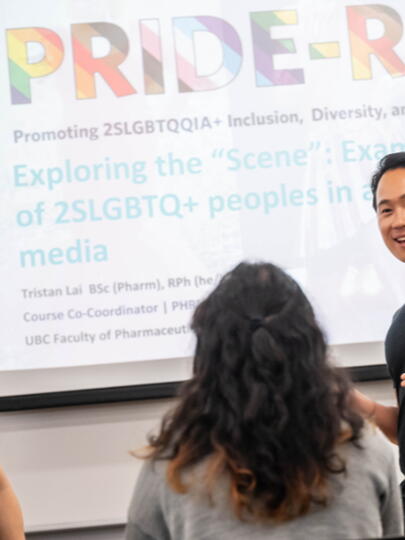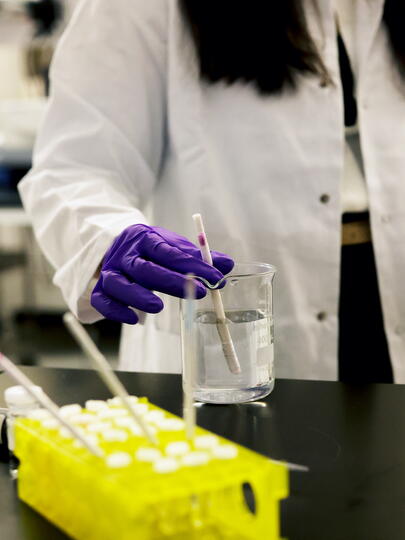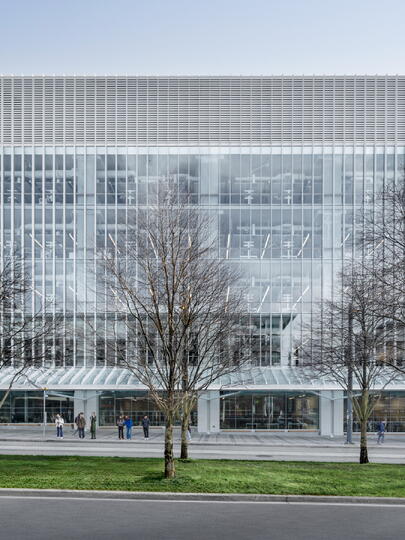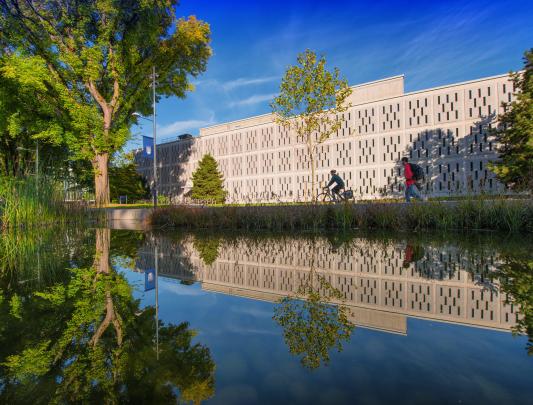UBC strengthens track record as global sustainability leader in higher education
UBC has once again been ranked as a global leader in sustainability efforts.
The university placed 13th overall (out of more than 1,400 institutions) in the 2022 Times Higher Education (THE) Impact Rankings for institutional efforts to advance the United Nations sustainable development goals (SDG). The goals promote environmental, social, and economic well-being across the planet.
UBC is one of only eight institutions in last year’s top 20 to remain in the top 20 this year, and one of only four universities (and the only one outside of the UK) to appear in the top 50 for both the THE World University Rankings, and the THE Impact Rankings.
For the second year in a row, the university tied for first in the SDG 9 (Industry, Innovation, and Infrastructure) ranking. SDG 9 examines research on industry and innovation, industry engagement, and the number of patents and spin-off companies.
“In recent years, universities and their connections to industry have never been more important to the advancement of innovation to the ultimate benefit of society. The importance of that linkage is clear in UBC spin-off companies like AbCellera and Acuitas and their work in the development of COVID-19 treatments and vaccine development,” said UBC President and Vice-Chancellor Prof. Santa J. Ono.
“We’re also seeing tremendous advancement in the development and application of tools to combat climate change globally with new companies founded by UBC researchers, students, and postdocs, such as Carbin Minerals and Takachar who both recently received recognition and funding from XPRIZE and the Musk Foundation. The success of all of these companies is a testament to the university’s commitment to the well-being of the global community.”
"Universities and their connections to industry have never been more important to the advancement of innovation to the ultimate benefit of society."
“It’s very encouraging to see the Canadian post-secondary sector as a whole making strides in this year’s THE Impact Rankings. It reflects the importance of the research, teaching, and operations in Canadian institutions focusing on addressing global issues,” said UBC Vice-President, Research and Innovation, Dr. Gail Murphy.
There are now 11 different countries represented in the top 20, which makes Canada’s performance (with six top 20 universities) remarkable.
Out of the more than 1,400 universities participating in the THE Impact Rankings globally, UBC also placed:
- Sixth in SDG 10 (reduce inequality)
- Seventh in SDG 13 (climate action)
- 11th in SDG 14 (conserve and sustainably use the oceans, seas, and marine resources for sustainable development)
- 19th in SDG 12 (sustainable consumption and production patterns)
- 19th in SDG 17 (improved and more equitable trade)
- 23rd in SDG 11 (inclusive, safe, resilient, and sustainable cities)
“Ranking sixth under SDG 10, reducing inequality, is significant,” said Ono. “A core element of the university’s strategic plan is our strategy of inclusive excellence. This involves UBC reviewing and revising policies and practices, expanding learning opportunities for faculty and staff, assessing our systems and structures, and promoting continued research on issues connected with diversity, equity, and inclusion. UBC recognizes this as a crucial element of its growth and is working collectively across all areas to advance these efforts.”
The SDG 13 ranking on climate action is another key achievement. UBC is a global leader in addressing climate change on its campuses through the development of renewable energy facilities, as well as exceeding its aggressive emission reduction targets, despite growth in floor space and the overall UBC population of students, faculty, and staff.
UBC’s ambitious Climate Action Plan 2030 targets an 85 per cent reduction in campus operations emissions by 2030, a 45 per cent collective reduction in emissions from extended impact sources (commuting, air travel, food, waste, etc.) and a 100 per cent reduction in operational greenhouse gas emissions by 2035.
“We recognized decades ago that climate action leadership and sustainability initiatives are inextricably linked to issues of social justice,” said John Madden, director of sustainability and engineering at UBC campus and community planning. “A stark example is the 2021 heat dome and floods in B.C. where the most vulnerable were Indigenous people, the elderly, people with disabilities, and those with low incomes.”
“We recognized decades ago that climate action leadership and sustainability initiatives are inextricably linked to issues of social justice.”
UBC was Canada’s first university to adopt a sustainability plan in 1997 and the first to open a sustainability office in 1998. The UBC sustainability initiative was created in 2009.
The initiative was formally relaunched as the Sustainability Hub earlier this year to better reflect its integral role in ensuring sustainability is embedded across UBC, through teaching, learning, research, partnerships, operations, and infrastructure.
“UBC’s work to lessen its climate impact and the holistic approach it takes to promote and integrate ground-breaking research into sustainability initiatives is an example of how we must all come together to address the most important issue of our time,” said Ono.
“These ranking results are an important reminder not only of how far we have come as an institution, but also how far we have yet to go. UBC will continue to leverage its intellectual and institutional capacities to help address sustainability challenges across our campuses, as well as at the regional and global scale.”




























